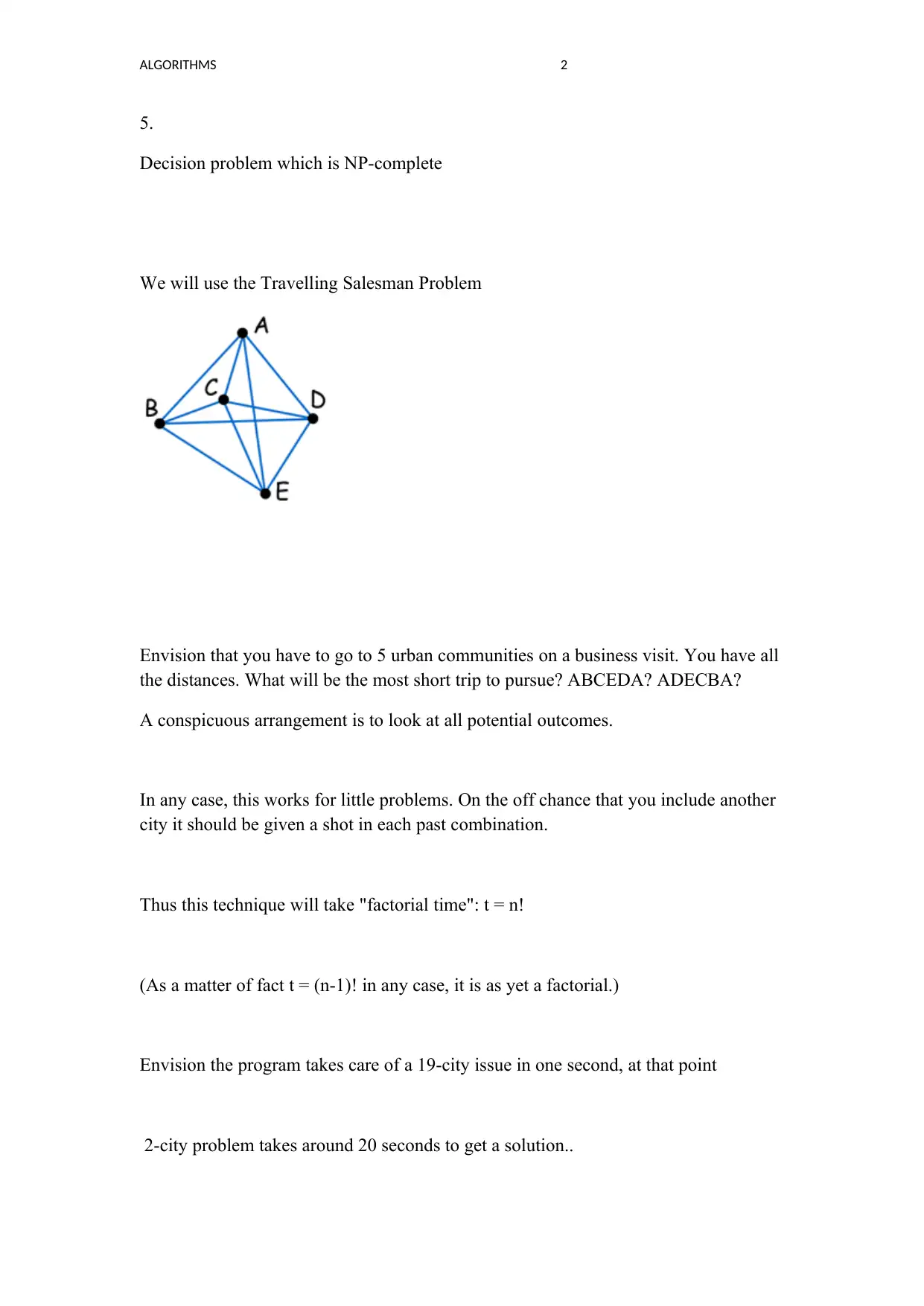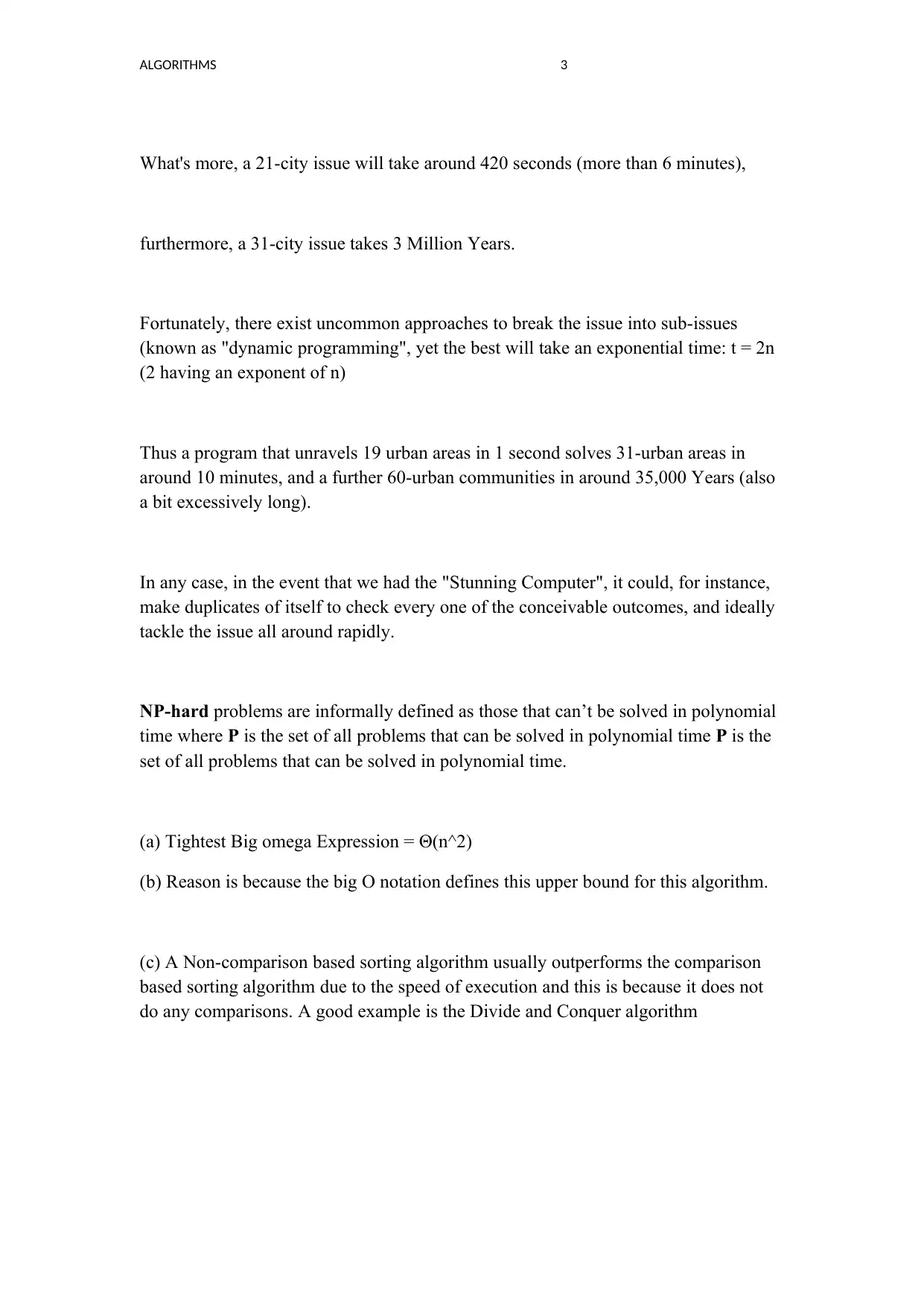Algorithms and Complexity Analysis - CS 301 - Fall Semester
VerifiedAdded on 2022/10/10
|3
|429
|63
Homework Assignment
AI Summary
This assignment solution explores the concepts of algorithms and complexity analysis, focusing on the Travelling Salesman Problem as an example of an NP-complete problem. It explains the factorial time complexity associated with brute-force approaches and contrasts it with exponential time complexity. The solution also discusses Big O notation, specifically Θ(n^2), to define the upper bound for the algorithm's performance. Furthermore, it highlights the advantages of non-comparison-based sorting algorithms over comparison-based ones, emphasizing their speed advantage due to the absence of comparisons. The Divide and Conquer algorithm is mentioned as an example of a non-comparison-based approach.
1 out of 3







![[object Object]](/_next/static/media/star-bottom.7253800d.svg)